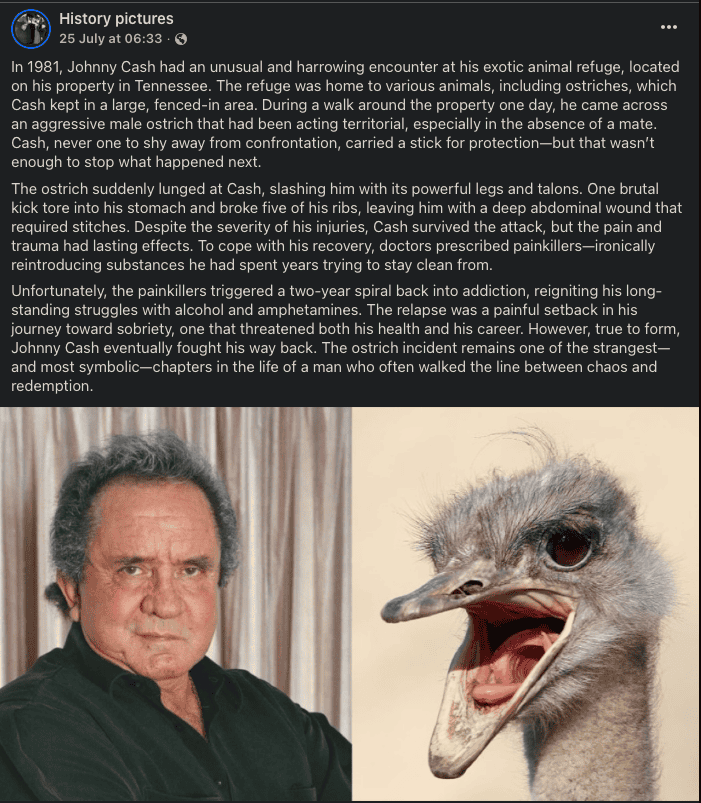The pain hit fast and deep. In 1981, Johnny Cash was walking through his private animal refuge in Tennessee when he crossed paths with an angry male ostrich. The bird, agitated and alone, struck without warning. It kicked Cash in the stomach, tearing into him with razor-sharp claws and breaking five of his ribs. The wound required stitches, but the deeper injury was one you could not see. That attack led to a relapse that nearly broke him.
Cash, who had fought for years to stay clean, was prescribed painkillers after the attack. What began as a medical recovery quickly spiraled out of control. The pills reopened the door to old habits and he soon found himself back in the grip of the addiction he had once escaped. For two years, he battled pain, shame, and silence. The ostrich, strange as it seems, became a symbol of something darker: the fight between the man he wanted to be and the chaos he could not always outrun.
In 1981, Johnny Cash had an unusual and harrowing encounter at his exotic animal refuge, located on his property in Tennessee.

But Johnny Cash never stayed down for long. He pulled himself out, as he had before, and found his way back to music, to honesty, and himself. His life was full of moments like that, brutal, unpredictable, and deeply human. That is why his songs never felt like performances. They felt like confessions. Every word came from the scars he carried, and the roads he had to walk twice just to get it right.
You can hear that fight still burning in Folsom Prison Blues, performed live with The Highwaymen in 1990. Cash, standing beside Willie Nelson, Kris Kristofferson, and Waylon Jennings, grips the mic like an old friend. “I hear the train a comin’, it’s rollin’ round the bend,” he growls, and the audience is instantly pulled in. He is older now, but not softer. The voice still carries weight, the kind you earn by surviving.
The Highwaymen – Folsom Prison Blues (American Outlaws: Live at Nassau Coliseum, 1990)
The performance is not flashy. It does not need to be. The strength is in the truth. Cash sings about prison, distance, and time dragging on, and you believe every word. It is not just a song about a man behind bars; it is about feeling trapped in your skin, watching the world move without you. And yet, in that moment on stage, he is free. Singing with his brothers, his eyes steady, his voice sharp, he is right where he belongs.
Johnny Cash lived close to the edge. But that was where his stories came from, and why his music still reaches people who feel broken, angry, or lost. He turned wounds into lyrics and pain into power. Follow Johnny Cash and The Highwaymen on Facebook, Instagram, and YouTube because some songs were not written. They survived.
